Contents
Guide

Gender and Sexuality in Ghanaian Societies
Gender and Sexuality in Africa and the Diaspora
Series Editors : Besi Brillian Muhonja (James Madison University) and Babacar MBaye (Kent State University)
Series Advisory Board : Nkiru Nzegwu, Achola Pala, Melinda Adams, Binyavanga Wainaina, Ashley Currier, Betty Wambui, Jane Rarieya, Olufemi Taiwo, Cheikh Thiam
Gender and Sexuality in Africa and the Diaspora publishes innovative, interdisciplinary research on intersections of gender, sexuality, and other political, social, economic, cultural, and geographic identity markers. The series has particular interest in groundbreaking scholarship on herstories/histories, elements and politics of gender and sexuality that center critical African and African diaspora thought and philosophies within global contemporary theoretical debates across the disciplines. Thus, manuscripts exploring gender relationships, queer identities, sexualities, masculinities, and femininities within both Africa and its diaspora in interdisciplinary contexts are highly encouraged.
Recent Titles in the Series:
Gender and Sexuality in Ghanaian Societies edited by Martha Donkor and Amoaba Gooden
Cabo Verdean Women Writing Remembrance, Resistance, and Revolution: Kriolas Poderozas edited by Terza A. Silva Lima-Neves and Aminah Fernandes Pilgrim
Gender and Education in Kenya edited by Esther Mukewa Lisanza
Women and the Nigeria-Biafra War: Reframing Gender and Conflict in Africa edited by Gloria Chuku and Sussie Okoro
Gender and Sexuality in Senegalese Societies edited by Babacar M'Baye and Besi Brillian Muhonja
Gender and Sexuality in Ghanaian Societies
Edited by
Martha Donkor and Amoaba Gooden
LEXINGTON BOOKS
Lanham Boulder New York London
Published by Lexington Books
An imprint of The Rowman & Littlefield Publishing Group, Inc.
4501 Forbes Boulevard, Suite 200, Lanham, Maryland 20706
www.rowman.com
86-90 Paul Street, London EC2A 4NE, United Kingdom
Copyright 2022 by The Rowman & Littlefield Publishing Group, Inc.
All rights reserved . No part of this book may be reproduced in any form or by any electronic or mechanical means, including information storage and retrieval systems, without written permission from the publisher, except by a reviewer who may quote passages in a review.
British Library Cataloguing in Publication Information Available
Library of Congress Cataloging-in-Publication Data
Names: Donkor, Martha, editor. | Gooden, Amoaba, 1967- editor.
Title: Gender and sexuality in Ghanaian societies / edited by Martha Donkor and Amoaba Gooden.
Description: Lanham : Lexington Books, [2021] | Series: Gender and sexuality in Africa and the diaspora | Includes bibliographical references and index.
Identifiers: LCCN 2021043266 (print) | LCCN 2021043267 (ebook) | ISBN 9781793628442 (cloth) | ISBN 9781793628466 (paperback) | ISBN 9781793628459 (epub)
Subjects: LCSH: WomenSexual behaviorGhana. | PatriarchyGhana. | Sex roleGhana.
Classification: LCC HQ1816 .G46 2021 (print) | LCC HQ1816 (ebook) | DDC 305.409667dc23
LC record available at https://lccn.loc.gov/2021043266
LC ebook record available at https://lccn.loc.gov/2021043267
 The paper used in this publication meets the minimum requirements of American National Standard for Information SciencesPermanence of Paper for Printed Library Materials, ANSI/NISO Z39.48-1992.
The paper used in this publication meets the minimum requirements of American National Standard for Information SciencesPermanence of Paper for Printed Library Materials, ANSI/NISO Z39.48-1992.
Working on this book was a collaboration of loveacross location, space, and time. Our history as friends and colleagues spans twenty-six years from when we first met each other as graduate students at the University of Guelph, Canada; Amoaba, a Jamaican-born Canadian, and Martha, a Ghanaian-born Canadian. We both currently reside in the US in different geographical locations and were able to use various virtual platforms to work on this edited collection. Special thanks to Dr. Babacar MBaye who invited us to consider pulling together, in one place, research on Gender and Sexuality(s) in Ghana. We write this book for our daughters: Susan Appiah-Kubi, Niarra Gooden-Clarke, and NyAshia Gooden-Clarke. We offer the contents of this book to them, in hopes that they will continue to use their voices to disrupt rigidly fixed notions about gender and sexuality, ultimately opening spaces so they can be who they are in the world.
Martha Donkor
In the introduction to her edited volume on sexuality, Signe Arnfred states simply, The time has come for re-thinking sexualities in Africa. Both Clapperton and Leigh-Rosss narratives demonstrate the kind of colonial imagination where Africa and its people are othered and Europeans placed on a hierarchy.
Colonial writers described African social systems in an oppositional framework to that of Europe. For instance, when they wrote that African social systems were primitive, then we want to simply ask: primitive in relation to whose? Colonial writers put Africa and Europe in a ranking order in which Europe occupied the top, superordinate position and Africa occupied the bottom. As Donkor observed in an analysis of colonial policies against miscegenation in Africa, Europe was everything that Africa was not. Europe was developed and progressive, Africa was primitive and backward; Europeans were civilized, Africans were savages; European women were chaste, African women could not control their libido. The negativity didnt stop with the achievement of independence by African countries. In the contemporary period, the spread of AIDS on the continent, female circumcision, and child prostitution have again thrust Africa on the negative trend of scholarly analysis of sexuality. The denigration of African gender relations and sexualities has in turn engendered a parallel impetus for scholars who want to reject Western negative depictions of Africans and their social systems and practices to set the record straight through contextual research.
From feminists who have challenged Western, mainstream feminist scholarship on the definitions of woman and theories of womens oppression, to anthropologists and sociologists who have interrogated colonialist depictions of African womens sexuality under patriarchy, there is what Donkor terms rescue and restorethat is, scholars must rescue and restore the body of literature that analyzes African womens experiences in their proper cultural contexts. Rescue and restore literature is decolonizing to the extent that it debunks and destabilizes the colonial hegemony of knowledge production about Africans. From edited volumes to single-authored books and thousands of articles on women, scholars, Africans on the continent and those living in the West have explored African womens lives from diverse philosophical, empirical, and theoretical perspectives. And like women living under patriarchy everywhere, these studies show that African womens experiences under patriarchy cannot be reduced exclusively to negative or positive impacts. Nor is it even sufficient to say that the truth lies somewhere in the middle for, as we will see later, African womens experiences, including their sexual behavior, are influenced by multiple and complex forces that do not lend themselves to simple negative or positive impact analysis.
One of the earliest and significant scholars on African womens gender and sexuality is feminist anthropologist Ifi Amadiume. In her book

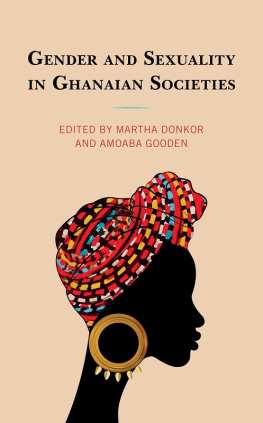

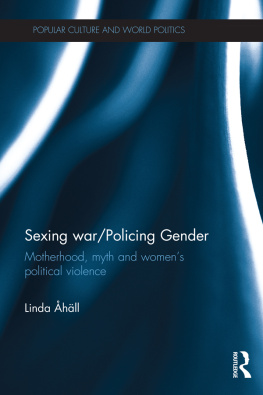
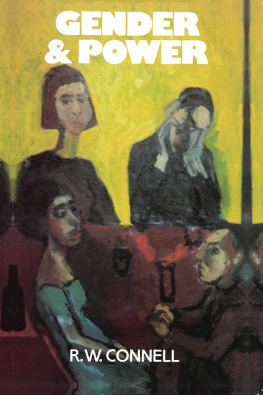
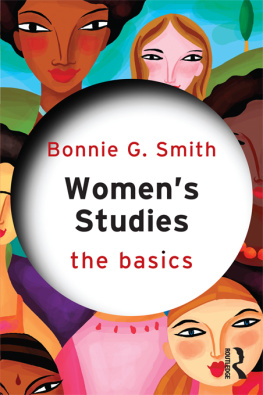
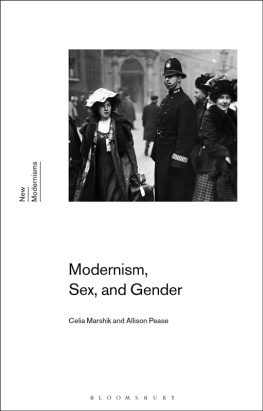
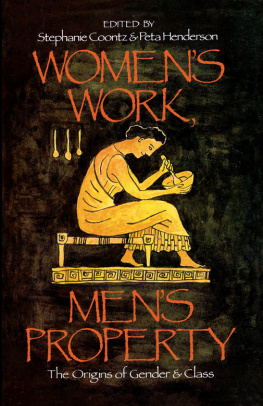

 The paper used in this publication meets the minimum requirements of American National Standard for Information SciencesPermanence of Paper for Printed Library Materials, ANSI/NISO Z39.48-1992.
The paper used in this publication meets the minimum requirements of American National Standard for Information SciencesPermanence of Paper for Printed Library Materials, ANSI/NISO Z39.48-1992.